The Benefits of Bamboo in Sustainable Living
In today's fast-paced world, where environmental concerns are at an all-time high, the quest for sustainable living has become more critical than ever. One remarkable solution that has emerged is bamboo. This incredible plant is not just a pretty face; it offers a plethora of benefits that can transform our approach to living sustainably. Imagine a world where our choices not only beautify our lives but also heal the planet. Sounds dreamy, right? Well, bamboo makes that dream a reality! From its eco-friendly properties to its versatility in construction and health benefits, bamboo is a game-changer in the realm of sustainable living.
Bamboo is often heralded as a rapidly renewable resource. Unlike traditional timber, which can take decades to mature, bamboo can grow to full height in just a few months. This remarkable growth rate means that we can harvest it sustainably without depleting our forests. Moreover, bamboo is a champion at absorbing carbon dioxide, which helps combat climate change. In fact, it can absorb up to 35% more CO2 than an equivalent mass of trees! And let's not forget about its water requirements. Bamboo thrives with minimal water and is resistant to pests, meaning it doesn't need harmful pesticides to flourish. This makes it an excellent choice for anyone looking to reduce their environmental impact.
When it comes to construction, bamboo is a true powerhouse. Its natural strength and flexibility make it suitable for a variety of applications, from flooring to scaffolding. Imagine building your dream home with a material that is not only sustainable but also incredibly strong! Bamboo can support heavy loads and withstand harsh weather conditions, making it a fantastic alternative to conventional building materials. In fact, many architects and builders are now recognizing the potential of bamboo in modern construction, leading to innovative designs that showcase its beauty and functionality.
One of the most impressive traits of bamboo is its durability. When properly treated, bamboo can outlast many types of traditional wood. Its natural resistance to pests and moisture means that it can be used in various climates without fear of decay. Think of bamboo as the superhero of construction materials—strong, resilient, and ready to take on the elements!
Incorporating bamboo into home design not only enhances aesthetics but also promotes sustainability. Imagine walking into a living room adorned with bamboo furniture, cabinetry, and decor. Not only does it look modern and chic, but it also reflects a commitment to eco-friendliness. Bamboo's unique grain and texture can add warmth and character to any space, making it a popular choice for interior designers looking to create a harmonious living environment.
Using bamboo in construction can also lead to improved energy efficiency. Bamboo's natural insulating properties can help regulate indoor temperatures, meaning less reliance on heating and cooling systems. This not only reduces energy costs but also contributes to a more sustainable lifestyle. Picture this: a cozy home that stays warm in winter and cool in summer, all thanks to the wonders of bamboo!
The bamboo industry is continually evolving, with innovative products emerging regularly. From biodegradable utensils to eco-friendly textiles, bamboo is paving the way for sustainable consumer goods. Imagine using a bamboo toothbrush or wearing clothing made from bamboo fibers—both are not only stylish but also kind to the planet. These innovations are not just trends; they represent a shift towards a more sustainable future.
Beyond its environmental advantages, bamboo products also offer various health benefits. For instance, bamboo charcoal is gaining popularity for its detoxifying properties. It can purify air and water, making it a fantastic addition to your home. Additionally, bamboo textiles are hypoallergenic and breathable, making them ideal for sensitive skin. So, whether you’re sleeping on bamboo sheets or wearing bamboo clothing, you’re not just making a fashion statement; you’re also promoting your health!
Bamboo possesses natural antimicrobial qualities, which means it helps keep harmful bacteria at bay. This is especially beneficial for products like clothing and bedding. Imagine snuggling into a bed made of bamboo sheets that are not just soft but also help promote a healthier living environment. It’s like a breath of fresh air in your home!
One of the standout features of bamboo textiles is their incredible softness and breathability. Unlike synthetic fabrics that can trap heat and moisture, bamboo textiles allow for airflow, keeping you comfortable and cool. This makes them perfect for warm climates or for those who tend to overheat at night. When you wear or sleep on bamboo, you're not just choosing comfort; you're also making a conscious choice for the planet.
The cultivation of bamboo can have a profoundly positive impact on local economies. By creating jobs and promoting sustainable agricultural practices, bamboo farming supports community development while contributing to environmental conservation efforts. Imagine a thriving community where people are employed in sustainable practices that benefit both their livelihoods and the planet. It’s a win-win situation!
- What makes bamboo a sustainable choice? Bamboo grows quickly, absorbs CO2, and requires minimal water and no pesticides.
- Can bamboo be used in construction? Absolutely! Bamboo is strong, flexible, and suitable for various construction applications.
- Are bamboo products safe for health? Yes, bamboo products are hypoallergenic and have natural antimicrobial properties.
- How does bamboo impact local economies? Bamboo cultivation creates jobs and promotes sustainable practices, benefiting communities.
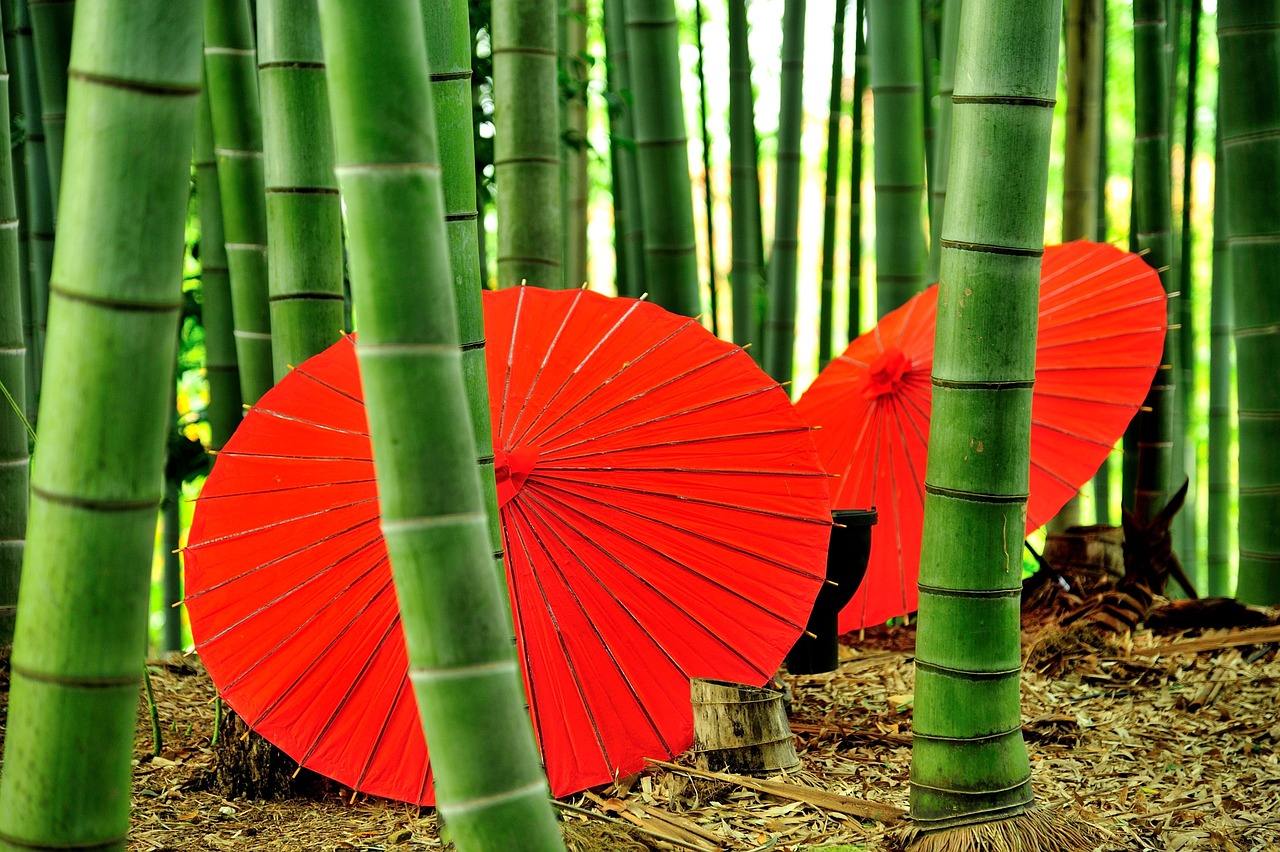
Eco-Friendly Properties of Bamboo
Bamboo is not just any plant; it is a superhero of the plant kingdom when it comes to sustainability. One of its most remarkable traits is its ability to grow at an astonishing rate—some species can grow up to 3 feet in just a single day! This rapid growth makes bamboo a rapidly renewable resource, which means we can harvest it without the long wait associated with traditional timber. Imagine a world where the materials we use can replenish themselves almost as quickly as we consume them—bamboo makes that dream a reality.
When it comes to environmental impact, bamboo shines brightly. It absorbs carbon dioxide from the atmosphere, acting as a natural carbon sink. This property is crucial in combating climate change, as it helps to reduce the amount of greenhouse gases in our air. In fact, bamboo can absorb up to 35% more carbon dioxide than an equivalent stand of trees. This means that incorporating bamboo into our lives can significantly contribute to a healthier planet.
Another reason why bamboo is eco-friendly is its minimal resource requirements. Unlike many traditional crops, bamboo requires very little water to thrive, making it an ideal choice for areas prone to drought. Additionally, bamboo is naturally resistant to pests and diseases, which means it can grow without the need for harmful pesticides or fertilizers. This not only protects the environment but also ensures that the surrounding ecosystems remain intact.
To put it simply, bamboo is a champion of sustainability. Here’s a quick overview of its eco-friendly properties:
- Rapid Growth: Grows up to 3 feet per day.
- Carbon Absorption: Absorbs more CO2 than trees.
- Water Efficiency: Requires minimal water.
- Pest Resistance: Grows without pesticides.
Incorporating bamboo into our daily lives is not just a trend; it’s a step towards a more sustainable future. Whether it’s using bamboo for construction, creating household items, or even in our clothing, each choice we make contributes to a greener planet. So, the next time you consider materials for your home or lifestyle, think of bamboo and its eco-friendly properties. It’s not just a choice; it’s a commitment to sustainability.

Versatility in Construction
Bamboo is not just a plant; it’s a game-changer in the construction industry! Its remarkable strength and flexibility make it an ideal alternative to conventional building materials. Imagine using a material that grows faster than you can say "sustainable living" and is as strong as steel! That's bamboo for you. Its natural properties allow it to be used in a variety of construction applications, from creating sturdy flooring to building resilient scaffolding. This versatility is one of the main reasons why architects and builders are increasingly turning to bamboo in their projects.
One of the standout features of bamboo is its ability to adapt to different styles and purposes. Whether you’re looking to build a modern eco-home or a traditional structure, bamboo can fit the bill. It can be shaped and treated to suit any design aesthetic, making it a favorite among designers who appreciate both form and function. Plus, its lightweight nature means that it can be transported and handled more easily than heavier materials, reducing labor costs and time on the job site.
When it comes to sustainability, bamboo truly shines. Unlike traditional timber, which can take decades to mature, bamboo reaches full height in just a few years. This rapid growth means that it can be harvested more frequently, allowing for a continuous supply of material without depleting forests. Additionally, bamboo helps to combat climate change by absorbing carbon dioxide during its growth, making it a carbon-negative building material. This is a win-win for both builders and the environment!
To illustrate the versatility of bamboo in construction, consider the following applications:
- Flooring: Bamboo flooring is not only stylish but also incredibly durable, making it an excellent choice for high-traffic areas.
- Scaffolding: In many parts of the world, bamboo is used as scaffolding due to its strength-to-weight ratio, providing a safe and reliable option for construction workers.
- Structural beams: Bamboo can be used for beams and supports in buildings, providing both strength and aesthetic appeal.
- Furniture: Beyond construction, bamboo is also popular in furniture design, offering a sustainable option for stylish home décor.
Moreover, bamboo’s natural resistance to pests and moisture makes it suitable for various climates and applications. This durability means that structures built with bamboo can withstand the test of time, often outlasting those made from conventional woods. It’s like having a superhero in your backyard that not only grows quickly but also protects your home!
As we move towards a more sustainable future, the construction industry is starting to recognize the immense potential of bamboo. It’s not just about building; it’s about building responsibly. By choosing bamboo, builders and homeowners alike are making a conscious decision to support eco-friendly practices while still achieving beautiful and functional designs. So, whether you're considering a new home or a renovation project, think about how bamboo can transform your space into a sustainable sanctuary.
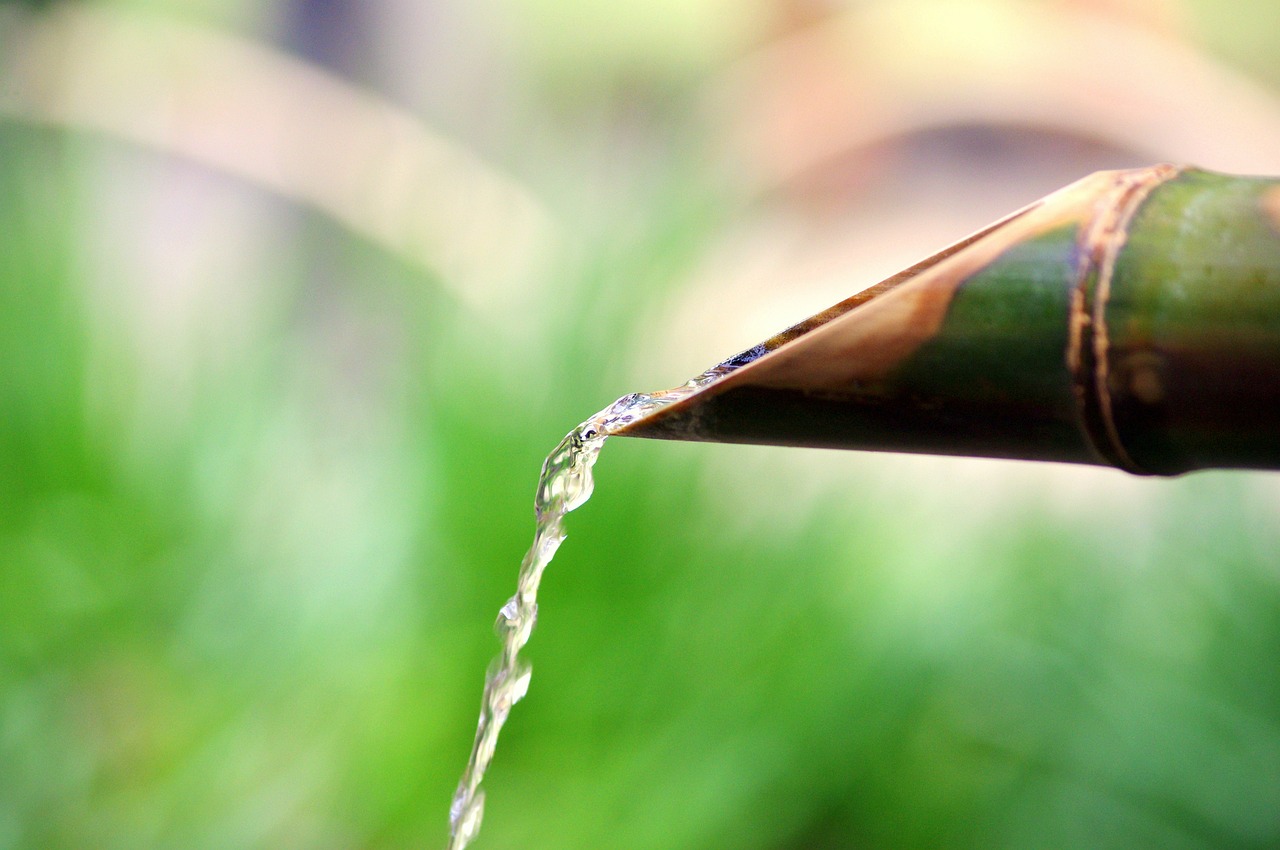
Durability and Longevity
Bamboo is not just a pretty face in the world of sustainable materials; it's a powerhouse of . When you think about it, bamboo is like the superhero of the plant kingdom. It’s incredibly strong, often compared to steel in terms of tensile strength, yet it remains light and flexible. This unique combination makes it an ideal choice for a variety of applications, from construction to everyday household items. Imagine building your dream home with a material that not only looks good but also stands the test of time!
One of the most impressive features of bamboo is its natural resistance to pests and moisture. Unlike traditional woods, which can succumb to rot and insect damage, bamboo has evolved to fend off these threats. This means that when you choose bamboo, you’re not just opting for a sustainable choice; you’re also investing in a material that can last for decades, even in challenging environments.
To put it into perspective, let’s compare bamboo with some commonly used materials in construction:
| Material | Tensile Strength (MPa) | Natural Resistance to Pests | Average Lifespan |
|---|---|---|---|
| Bamboo | 150-200 | High | 30+ years |
| Softwood (e.g., Pine) | 60-100 | Low | 10-20 years |
| Hardwood (e.g., Oak) | 80-120 | Medium | 20-50 years |
From the table above, it’s clear that bamboo not only outperforms softwoods but also gives hardwoods a run for their money. With its impressive lifespan, bamboo can be a long-term solution for anyone looking to build sustainably. Plus, its ability to thrive in various climates means that whether you’re in a humid rainforest or a dry desert, bamboo can adapt and flourish.
But let’s not forget about the aesthetic appeal! Bamboo’s natural beauty and unique grain patterns mean that it can add a touch of elegance to any space. Whether it’s a chic bamboo floor or stunning bamboo furniture, you’re not just making a sustainable choice; you’re also enhancing your home’s decor. It’s like hitting two birds with one stone—style and sustainability!
In conclusion, when considering materials for construction or home design, bamboo stands out as a champion of . Its strength, resistance to the elements, and aesthetic appeal make it a fantastic choice for anyone looking to make a positive impact on the environment while enjoying the benefits of a long-lasting product.
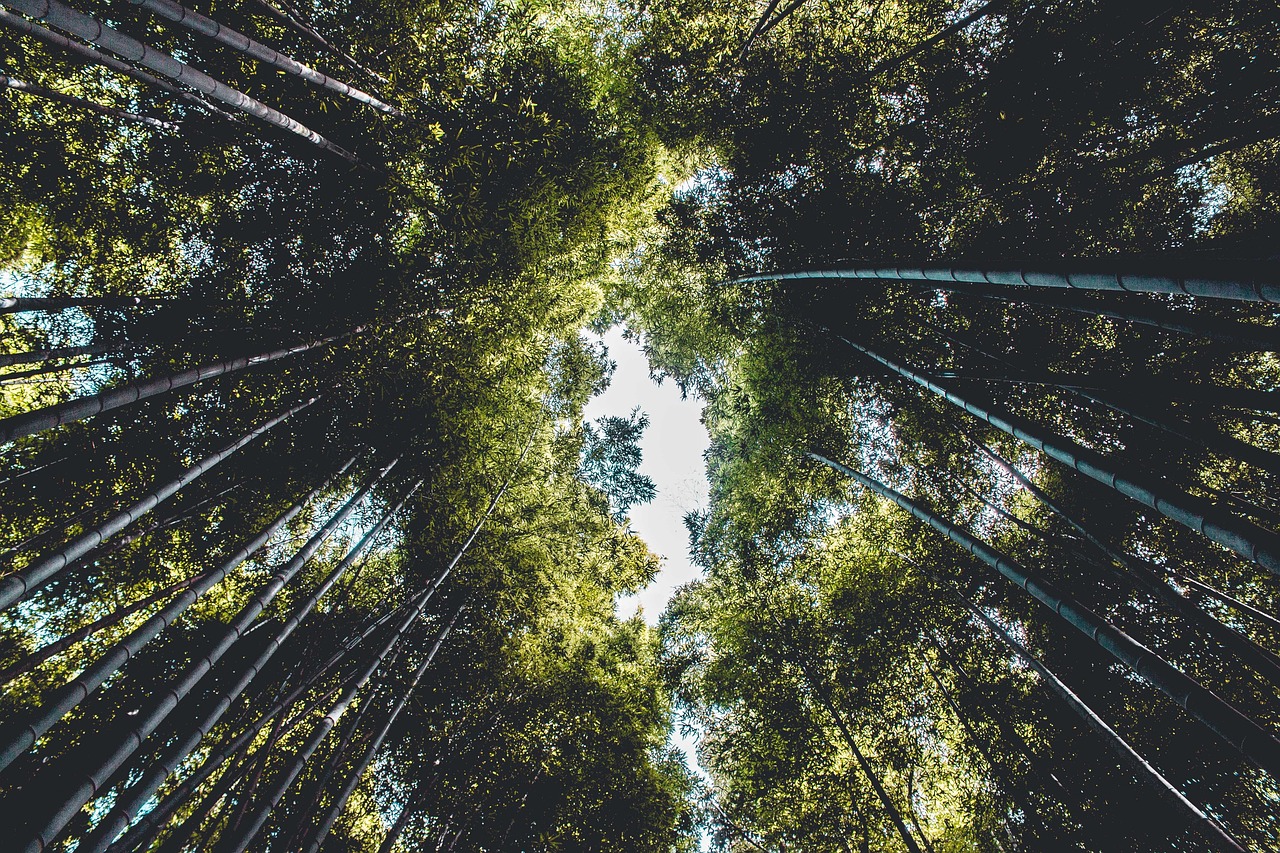
Applications in Home Design
When it comes to home design, bamboo is not just a trend; it's a revolution! Imagine walking into a space that exudes warmth and elegance while also being incredibly friendly to our planet. Bamboo can be your go-to material for achieving that dream. From stunning flooring to chic furniture, the applications of bamboo in home design are truly endless. Not only does it look fantastic, but it also brings a touch of nature indoors, creating a serene atmosphere that can transform any living space into a sanctuary.
One of the most popular applications of bamboo in home design is in flooring. Bamboo flooring is not only aesthetically pleasing, but it is also incredibly durable. In fact, it can rival traditional hardwoods in terms of strength and longevity. Homeowners love it for its unique grain patterns and natural hues, which can complement various interior styles, from modern to rustic. Plus, the installation process is often straightforward, making it a favorite among DIY enthusiasts.
But flooring is just the beginning! Bamboo is also making waves in furniture design. Think about a sleek bamboo coffee table or a set of elegant chairs that can seamlessly blend with any decor. These pieces are not only stylish but also lightweight and easy to move, adding versatility to your home. The strength of bamboo allows it to be crafted into intricate designs, offering both functionality and beauty. Imagine hosting friends around a bamboo dining table, where every meal feels like a feast in a tropical paradise!
In addition to furniture, bamboo can be used in cabinetry and shelving. The natural finish of bamboo can add a touch of sophistication to kitchens and bathrooms, while its resilience makes it an ideal choice for everyday use. And let’s not forget about decor items! Bamboo vases, wall art, and even light fixtures can elevate your home’s aesthetic, creating a cohesive look that screams eco-friendly elegance.
Moreover, bamboo is an excellent choice for window treatments. Bamboo shades or blinds provide a natural look while offering privacy and light control. They help create a cozy ambiance in any room, making you feel closer to nature. Imagine waking up to the soft morning light filtering through bamboo shades, setting the perfect tone for your day.
To summarize, the applications of bamboo in home design are vast and varied. From flooring to furniture, cabinetry to decor, bamboo offers a sustainable and stylish solution for modern living. Its unique properties not only enhance the beauty of your home but also contribute to a greener planet. So, why not embrace bamboo in your next home project? You’ll be doing your part for the environment while enjoying the many benefits this incredible plant has to offer!
- What are the benefits of using bamboo in home design?
Bamboo is eco-friendly, durable, and versatile, making it an excellent choice for various applications in home design. - Is bamboo flooring easy to maintain?
Yes, bamboo flooring is relatively easy to maintain. Regular sweeping and occasional mopping are usually sufficient to keep it looking great. - How does bamboo compare to traditional hardwoods?
Bamboo is often stronger than many hardwoods and has a faster growth rate, making it a more sustainable choice. - Can bamboo be used in humid environments?
Yes, bamboo has natural moisture resistance, making it suitable for various climates, including humid environments.
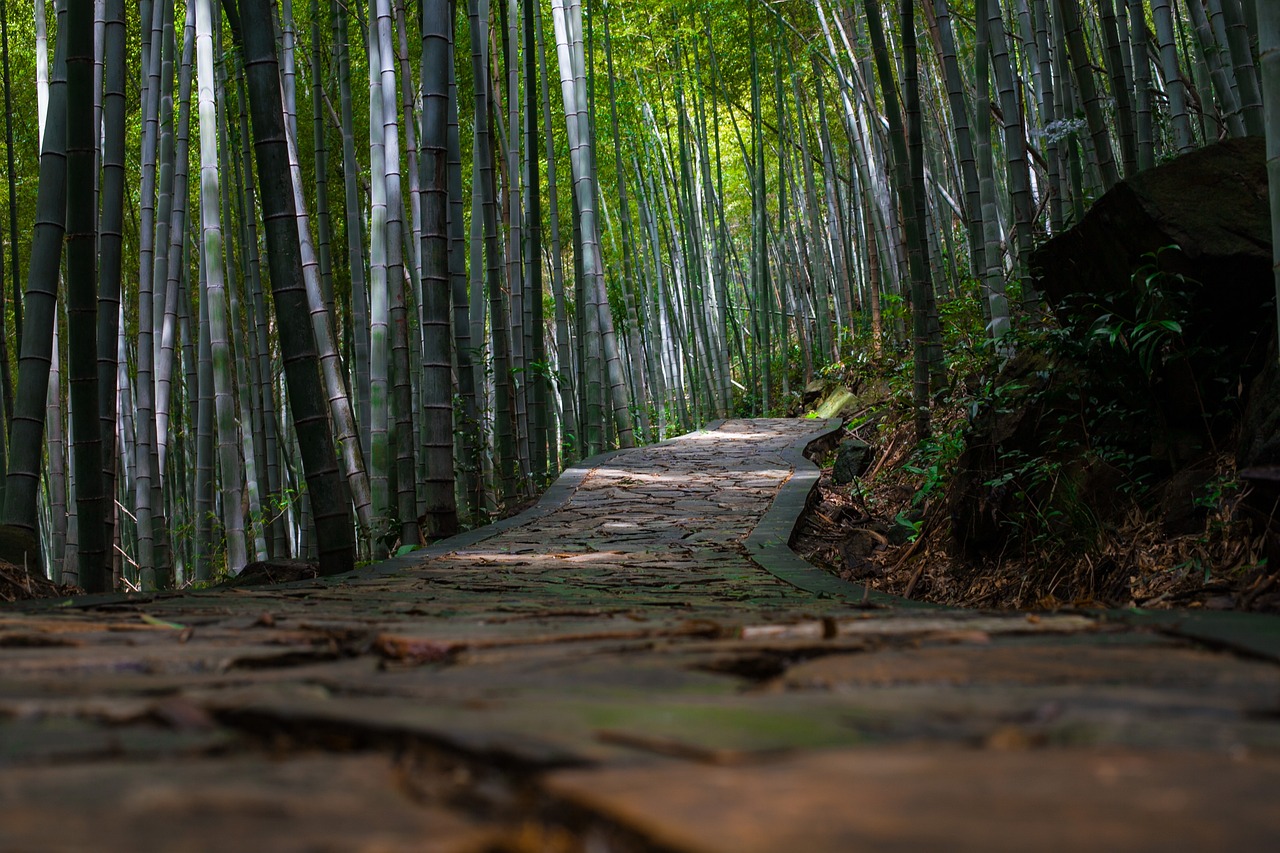
Energy Efficiency Benefits
When it comes to building a sustainable home, energy efficiency is a critical factor to consider. One of the standout features of bamboo is its remarkable ability to enhance energy efficiency in various construction applications. Unlike traditional materials, bamboo has natural insulating properties that can significantly reduce the need for artificial heating and cooling systems. This not only translates into lower energy bills but also minimizes the overall carbon footprint of your living space.
Imagine living in a home that stays cool in the summer and warm in the winter without cranking up the thermostat. That’s the magic of bamboo! By using bamboo in walls, flooring, and even roofing, homeowners can create a more stable indoor climate. This is particularly beneficial in regions with extreme temperatures, where conventional materials often fail to provide adequate insulation.
Furthermore, bamboo’s lightweight nature makes it easier to transport and handle, reducing the energy costs associated with construction. When you consider the entire lifecycle of a building material—from extraction to transportation to installation—bamboo emerges as an eco-friendly champion. The reduced energy consumption during these phases contributes to a more sustainable building practice.
To illustrate the energy efficiency benefits of bamboo compared to traditional materials, take a look at the table below:
| Material | Insulation Value (R-Value) | Energy Consumption During Construction |
|---|---|---|
| Bamboo | 3.0 - 5.0 | Low |
| Wood | 1.5 - 3.0 | Moderate |
| Concrete | 0.5 - 1.0 | High |
This table highlights the superior insulation properties of bamboo compared to wood and concrete, making it a more energy-efficient choice for construction. Additionally, using bamboo can lead to significant energy savings over time, as its natural insulating properties help maintain comfortable indoor temperatures without excessive reliance on heating and cooling systems.
In conclusion, incorporating bamboo into your home design not only promotes a greener lifestyle but also enhances energy efficiency. By choosing bamboo, you’re not just making a stylish choice; you’re making a decision that benefits both your wallet and the planet. So, why not embrace this versatile plant and enjoy the many energy-saving advantages it offers?
- What makes bamboo a sustainable building material? Bamboo grows rapidly, requires minimal resources, and absorbs carbon dioxide, making it an eco-friendly choice.
- How does bamboo compare to traditional insulation materials? Bamboo has a higher R-value, providing better insulation and reducing energy costs.
- Can bamboo withstand extreme weather conditions? Yes, bamboo is durable and can adapt to various climates due to its natural resistance to pests and moisture.
- Is bamboo easy to maintain? Absolutely! Bamboo requires minimal maintenance and retains its beauty over time.
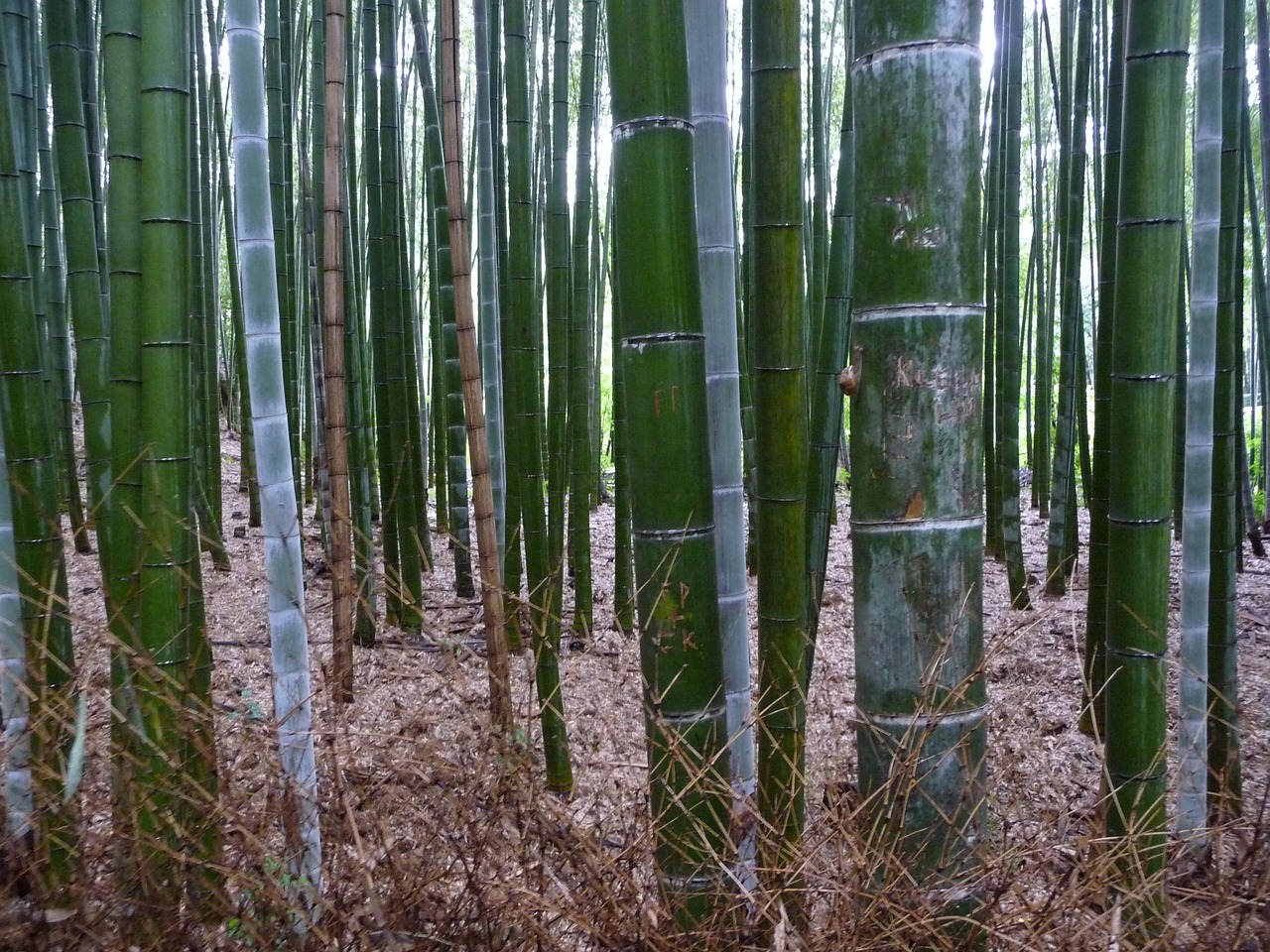
Innovations in Bamboo Products
In recent years, the bamboo industry has witnessed a remarkable transformation, leading to a surge of innovative products that harness the unique properties of this incredible plant. From biodegradable utensils to eco-friendly textiles, the versatility of bamboo is paving the way for a sustainable future. Imagine walking into your kitchen and seeing utensils made from bamboo instead of plastic—this is not just a dream but a growing reality. These products not only reduce our reliance on harmful materials but also promote a cleaner planet.
One of the most exciting innovations is the development of bamboo charcoal. This product is not just a trendy item; it has genuine health benefits. Bamboo charcoal is known for its ability to absorb toxins and impurities, making it an excellent choice for air purification and even in skincare products. The porous structure of bamboo charcoal allows it to trap unwanted substances, promoting a healthier living space. Moreover, it can be used in various applications, from deodorizing refrigerators to creating natural filtration systems.
Additionally, the textile industry has embraced bamboo, leading to the creation of soft, breathable fabrics that are both comfortable and environmentally friendly. Bamboo textiles are not only hypoallergenic but also possess natural moisture-wicking properties, making them ideal for activewear and bedding. Imagine slipping into a bed made of bamboo sheets after a long day; the softness combined with breathability offers unparalleled comfort. This innovation is not just about luxury; it's about making responsible choices that benefit our health and the environment.
Furthermore, bamboo is being utilized in the production of biodegradable packaging. As the world grapples with plastic pollution, bamboo packaging presents a viable alternative that decomposes naturally, reducing landfill waste. Companies are increasingly adopting this eco-friendly solution, realizing that sustainability can be stylish and practical. Picture a world where your takeaway food comes in a bamboo container instead of plastic—this is the future we are heading towards.
To summarize, the innovations in bamboo products are not merely a trend; they signify a shift towards a more sustainable and eco-conscious lifestyle. The benefits of bamboo extend beyond its environmental impact; they also enhance our daily lives with healthier, more comfortable, and stylish choices. As we continue to explore the potential of bamboo, we can anticipate even more groundbreaking developments that will shape the way we live, consume, and interact with our environment.
- What are the main benefits of using bamboo products?
Bamboo products are eco-friendly, durable, and often possess natural antimicrobial properties, making them a healthier choice for consumers.
- Is bamboo sustainable?
Yes, bamboo is a rapidly renewable resource that requires minimal water and no pesticides, making it an excellent sustainable option.
- Can bamboo be used in construction?
Absolutely! Bamboo's strength and flexibility make it a popular choice for various construction applications, including flooring and scaffolding.
- Are bamboo textiles hypoallergenic?
Yes, bamboo textiles are hypoallergenic and breathable, making them ideal for sensitive skin.
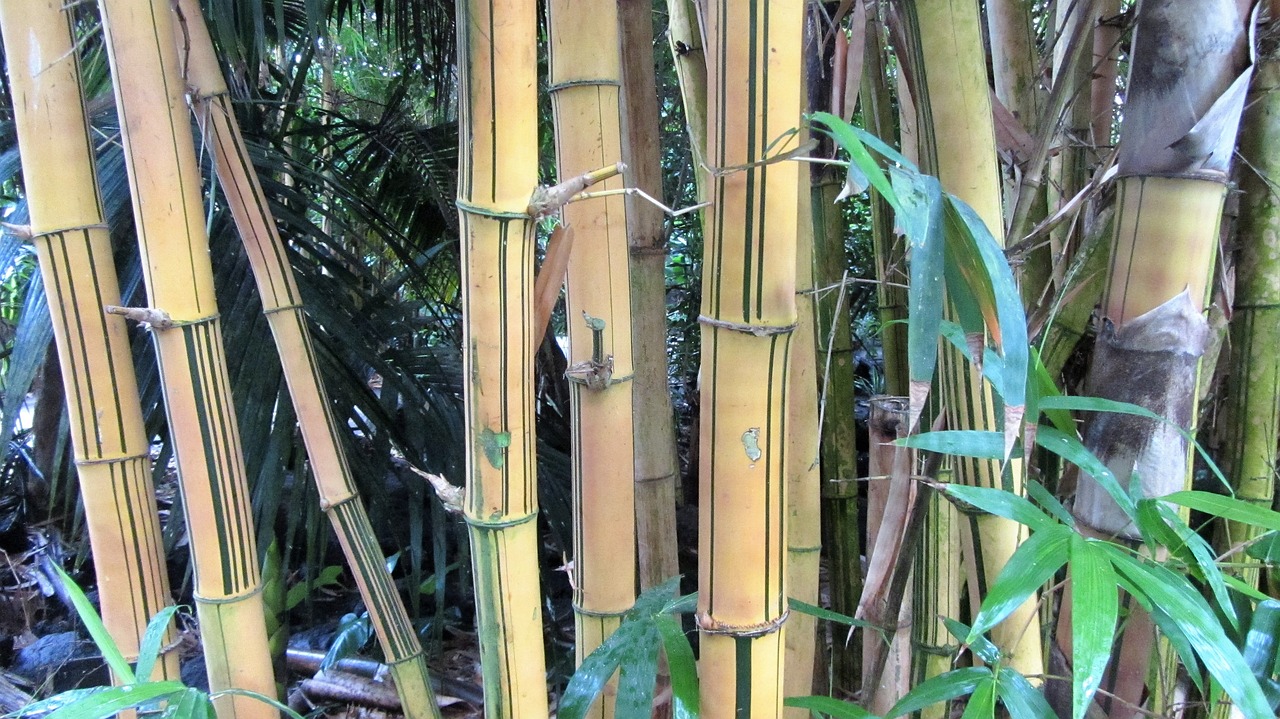
Health Benefits of Bamboo
Bamboo is not only a versatile and sustainable material, but it also boasts a plethora of health benefits that can enhance our lives in various ways. One of the standout features of bamboo is its ability to contribute to a healthier living environment. For instance, bamboo charcoal is renowned for its detoxifying properties. When activated, bamboo charcoal can absorb toxins and impurities from the air, making it a popular choice for air purifiers and skincare products. Imagine walking into a room where the air feels fresher and cleaner, all thanks to this remarkable plant!
Moreover, bamboo textiles have gained significant attention for their hypoallergenic and breathable qualities. This means that clothing and bedding made from bamboo fibers can be particularly beneficial for individuals with sensitive skin or allergies. The natural properties of bamboo help to prevent the growth of harmful bacteria, ensuring that your clothing remains fresher for longer. It’s like wearing a second skin that not only feels good but also cares for your health.
The natural antimicrobial properties of bamboo are another reason to consider incorporating it into your home. Bamboo fabrics can inhibit the growth of bacteria and fungi, which is especially important for items like clothing, bedding, and even kitchen towels. This antimicrobial quality helps create a healthier living space, reducing the chances of infections and allergies. Think of bamboo as a guardian of your home, working tirelessly to keep harmful microbes at bay.
Additionally, the comfort and breathability of bamboo textiles cannot be overstated. When you slip into bamboo sheets or wear bamboo clothing, you are enveloped in a softness that is hard to match. The fibers allow for excellent moisture wicking, keeping you cool in the summer and warm in the winter. This adaptability makes bamboo an ideal choice for all seasons. Just picture a cozy night’s sleep, wrapped in the gentle embrace of bamboo fabric, promoting not just comfort but also your overall well-being.
In summary, the health benefits of bamboo extend far beyond its physical properties. From its detoxifying capabilities to its natural antimicrobial qualities, bamboo is a powerhouse of health benefits. By incorporating bamboo products into your daily life, you are not only making a sustainable choice but also investing in your health and comfort. So why not explore the world of bamboo and see how it can enhance your lifestyle?
- What are the health benefits of bamboo charcoal? Bamboo charcoal is known for its ability to absorb toxins and purify the air, making it a great addition to home air purifiers.
- Is bamboo fabric safe for sensitive skin? Yes, bamboo textiles are hypoallergenic and breathable, making them suitable for those with sensitive skin or allergies.
- How does bamboo contribute to a healthier environment? Bamboo’s natural antimicrobial properties help reduce the presence of harmful bacteria, promoting a cleaner living space.
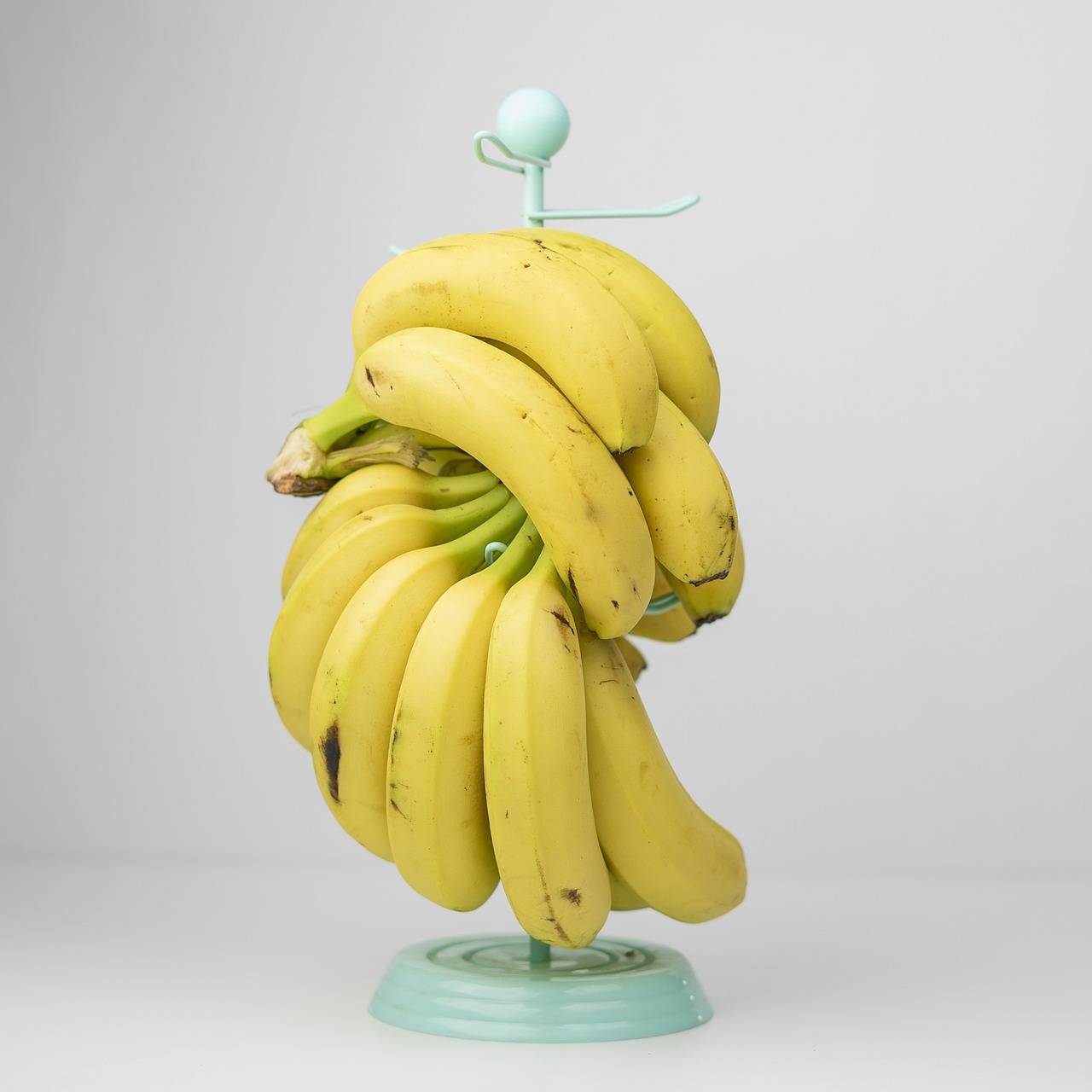
Natural Antimicrobial Properties
Bamboo is not just a pretty face in the world of sustainable materials; it comes packed with that make it a superhero in promoting health and hygiene. This feature is primarily due to the presence of a compound called bamboo kun. This natural substance helps to inhibit the growth of harmful bacteria, fungi, and even some viruses. Imagine having a material that not only looks good but also actively works to keep your living spaces cleaner and healthier!
When it comes to household items, bamboo is a fantastic choice for products like clothing, bedding, and even kitchen utensils. The antimicrobial properties of bamboo mean that when you wear bamboo clothing or sleep on bamboo sheets, you're less likely to experience skin irritations or allergies. This is especially beneficial for individuals with sensitive skin or respiratory issues. It's as if bamboo is giving you a gentle hug while keeping the nasties at bay!
Moreover, the benefits of bamboo extend beyond personal use. Using bamboo in communal settings, such as schools or hospitals, can contribute to a healthier environment. Since bamboo products resist the growth of bacteria, they can help reduce the spread of infections, making them an excellent choice for high-traffic areas. Just think about how many germs can linger on traditional materials; switching to bamboo could be a game-changer!
Incorporating bamboo into your lifestyle not only benefits your health but also aligns with a more eco-friendly approach. By choosing bamboo products, you’re not just opting for style and comfort; you’re also making a conscious decision to support a material that plays a role in environmental conservation. In a world where we’re all striving to make better choices, bamboo stands out as a shining example of how we can live sustainably without sacrificing quality or health.
- What are the health benefits of bamboo products?
Bamboo products, such as textiles and charcoal, can promote better health through their natural antimicrobial properties and breathability. - Is bamboo environmentally friendly?
Yes, bamboo is a rapidly renewable resource that requires minimal water and no pesticides, making it an excellent choice for sustainable living. - Can bamboo help reduce allergies?
Due to its antimicrobial properties, bamboo can help reduce allergens and irritants, making it a great option for sensitive individuals. - How durable are bamboo products?
Bamboo is known for its strength and durability, often outlasting traditional wood products, which contributes to its sustainability.
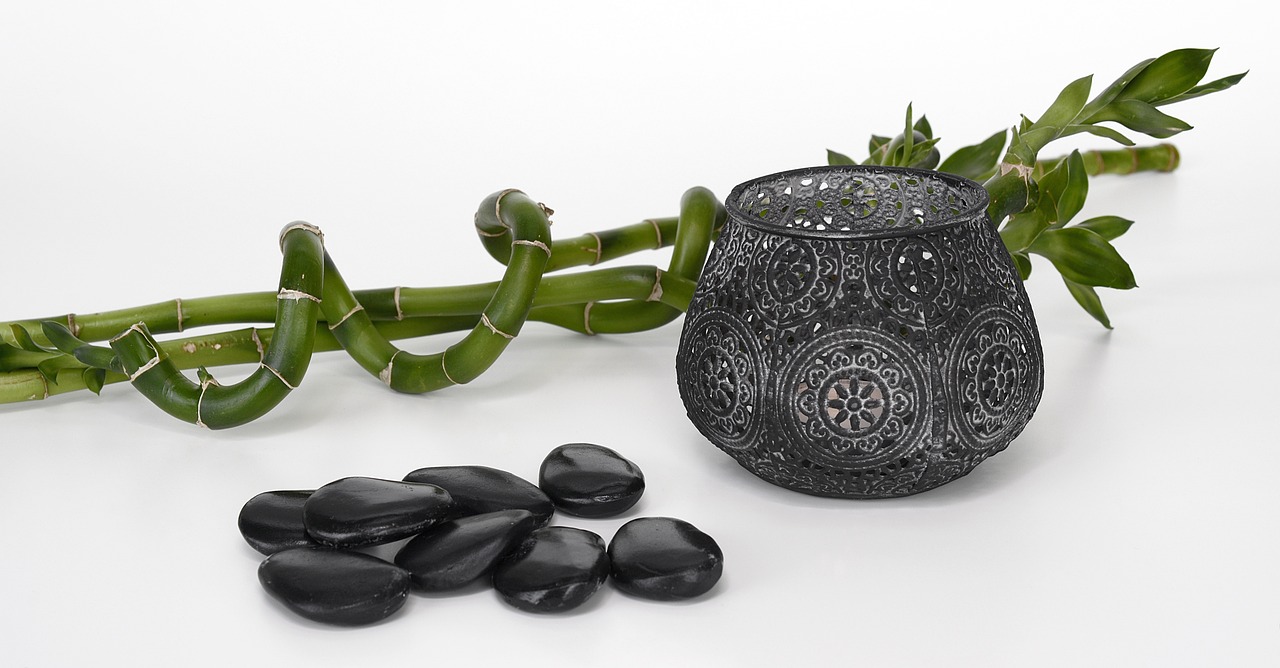
Comfort and Breathability
Bamboo textiles are renowned for their softness and breathability, making them a top choice for those who prioritize comfort in their clothing and bedding. Imagine wrapping yourself in a gentle embrace every night; that's what bamboo offers! Unlike conventional fabrics that can trap heat and moisture, bamboo fibers are naturally porous, allowing air to circulate freely. This means you can stay cool during those hot summer nights and warm when the temperatures drop. Isn't that a dream come true?
What sets bamboo apart from other materials is its unique structure. The fibers are not only smooth but also hypoallergenic, making them perfect for sensitive skin. This is particularly beneficial for individuals who suffer from allergies or skin irritations. By choosing bamboo, you're opting for a fabric that is less likely to cause discomfort. It’s like choosing a cozy blanket over a scratchy old sheet!
Moreover, the moisture-wicking properties of bamboo textiles help to keep you dry and comfortable. Whether you're engaging in physical activities or just lounging around, bamboo can absorb moisture away from the skin, allowing it to evaporate quickly. This feature is especially important for active individuals who want to stay fresh without having to constantly change their clothes. Picture yourself in a bamboo T-shirt, feeling dry and light even after a long day—sounds appealing, right?
In addition to comfort, the environmental benefits of bamboo textiles cannot be overlooked. The cultivation of bamboo requires significantly less water compared to cotton, and it grows quickly without the need for harmful pesticides. So, while you're enjoying the comfort of bamboo, you're also contributing to a more sustainable planet. It's a win-win situation!
For those curious about the different types of bamboo textiles available, here’s a quick overview:
| Type of Bamboo Textile | Comfort Level | Breathability | Environmental Impact |
|---|---|---|---|
| Bamboo Viscose | High | Excellent | Low |
| Bamboo Linen | Medium | Very Good | Moderate |
| Bamboo Charcoal Fabric | High | Good | Low |
In conclusion, when it comes to comfort and breathability, bamboo textiles stand out as an exceptional choice. They not only provide a soft, luxurious feel against the skin but also promote a healthier and more sustainable lifestyle. So next time you're shopping for clothing or bedding, consider bamboo; your skin and the planet will thank you!
- What is bamboo fabric made from? Bamboo fabric is made from the pulp of the bamboo plant, which is processed into fibers.
- Is bamboo fabric eco-friendly? Yes, bamboo is considered eco-friendly due to its fast growth rate, minimal water usage, and lack of pesticides.
- Can bamboo fabric cause allergic reactions? Bamboo fabric is hypoallergenic and is less likely to cause allergic reactions, making it suitable for sensitive skin.
- How do I care for bamboo textiles? Bamboo textiles are typically machine washable. It's best to follow the care instructions on the label for longevity.
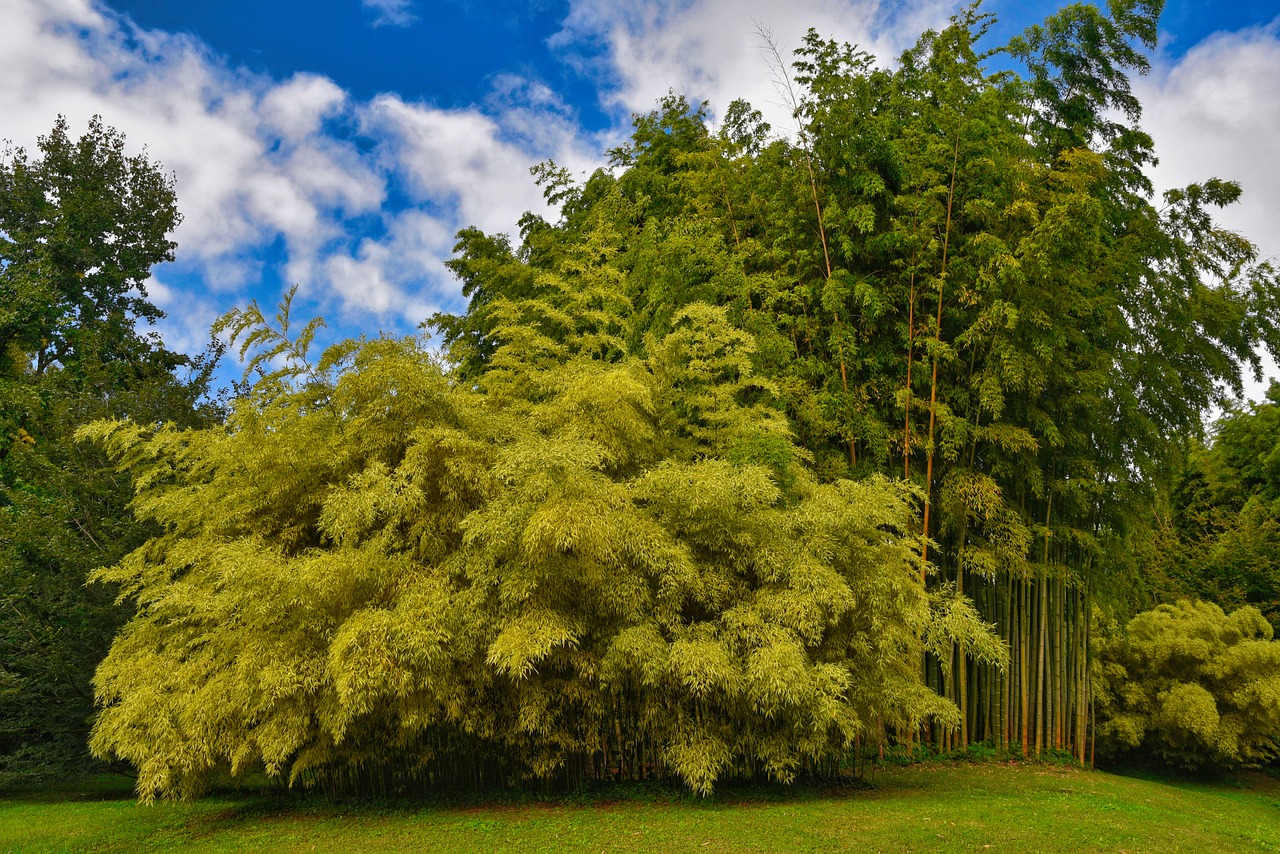
Economic Impact of Bamboo Cultivation
Bamboo cultivation is not just a green initiative; it’s a catalyst for economic growth in many regions around the world. By embracing bamboo as a sustainable resource, communities can unlock a treasure trove of economic opportunities. One of the most significant impacts is job creation. As demand for bamboo products rises, so does the need for skilled labor in harvesting, processing, and manufacturing. This influx of jobs can help lift families out of poverty and stimulate local economies.
Moreover, bamboo farming promotes sustainable agricultural practices, encouraging farmers to diversify their crops and reduce reliance on traditional monoculture systems. This shift not only enhances soil health but also increases resilience against climate change, ultimately leading to more stable incomes for farmers. In many cases, bamboo can be harvested in just three to five years, providing a quicker return on investment compared to traditional hardwoods, which can take decades to mature.
Another fascinating aspect of bamboo cultivation is its potential for export. Countries rich in bamboo resources can tap into the global market, exporting everything from furniture to textiles. The increasing awareness of sustainable living among consumers worldwide has created a robust demand for eco-friendly products, and bamboo fits the bill perfectly. This trend can significantly boost trade revenues and enhance a country’s economic standing on the global stage.
To illustrate the economic benefits of bamboo cultivation, consider the following table:
| Economic Benefit | Description |
|---|---|
| Job Creation | Increased employment opportunities in harvesting, processing, and manufacturing bamboo products. |
| Sustainable Agriculture | Diversification of crops and improved soil health through eco-friendly farming practices. |
| Quick Returns | Faster harvesting cycles compared to traditional timber, providing quicker financial returns for farmers. |
| Export Opportunities | Access to international markets, boosting trade revenues through eco-friendly bamboo products. |
In addition, the cultivation of bamboo can lead to community development. As local economies grow, there’s often an increase in infrastructure improvements, such as better roads and access to markets. This not only benefits bamboo farmers but also other local businesses, creating a ripple effect of economic enhancement throughout the region.
Ultimately, investing in bamboo cultivation is a win-win situation. It not only fosters economic growth but also promotes environmental sustainability. By supporting this green resource, communities can take significant strides towards a more prosperous and sustainable future.
- What are the main economic benefits of bamboo cultivation?
Bamboo cultivation offers job creation, sustainable agricultural practices, quick returns on investment, and export opportunities. - How does bamboo farming promote sustainable practices?
Bamboo farming encourages crop diversification and helps improve soil health, making it a more resilient agricultural practice. - Can bamboo products be exported?
Yes, there is a growing global demand for eco-friendly bamboo products, providing lucrative export opportunities for countries rich in bamboo resources. - How quickly can bamboo be harvested?
Bamboo can be harvested in as little as three to five years, significantly faster than traditional hardwoods.
Frequently Asked Questions
- What makes bamboo an eco-friendly material?
Bamboo is a rapidly renewable resource that absorbs carbon dioxide from the atmosphere. It grows quickly, requiring minimal water and no pesticides, which significantly reduces its environmental impact compared to traditional materials.
- How is bamboo used in construction?
Bamboo's strength and flexibility make it an excellent choice for various construction applications. It can be used for flooring, scaffolding, and even structural components, providing a sustainable alternative to conventional building materials.
- Is bamboo durable?
Absolutely! Bamboo is known for its impressive durability and can often outlast many types of conventional wood. Its natural resistance to pests and moisture makes it suitable for a wide range of climates and uses.
- What are the health benefits of bamboo products?
Bamboo products, such as bamboo charcoal, are known for their detoxifying properties, while bamboo textiles are hypoallergenic and breathable. This makes them ideal for clothing and bedding, promoting a healthier living environment.
- How does bamboo contribute to energy efficiency?
Using bamboo in construction can enhance energy efficiency by providing natural insulation. This can help reduce heating and cooling costs, making your home more sustainable and cost-effective in the long run.
- What innovations are happening in the bamboo industry?
The bamboo industry is evolving rapidly, with new products emerging all the time. From biodegradable utensils to eco-friendly textiles, bamboo is paving the way for sustainable consumer goods that are both functional and environmentally friendly.
- How does bamboo cultivation impact local economies?
Bamboo cultivation can create jobs and promote sustainable agricultural practices, positively impacting local economies. This not only supports community development but also contributes to environmental conservation efforts.



















